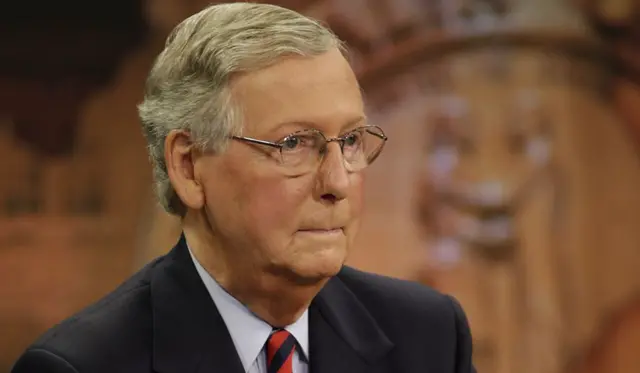Republican leadership in the U. S. Senate said on Wednesday there would not be a confirmation hearing for the White House's pick for the Supreme Court vacancy.
"The next justice could fundamentally alter the direction of the Supreme Court and have a profound impact on our country, so of course the American people should have a say in the court's direction," said Senate Majority Leader Mitch McConnell in a floor speech in the Congress.
"The American people may well elect a president who decides to nominate Judge Garland for Senate consideration. The next president may also nominate somebody very different. Either way, our view is this: Give the people a voice in filling this vacancy, " said McConnell.
U.S. President Barack Obama on Wednesday nominated Merrick Garland as the country's 113th Supreme Court justice, setting off a showdown with Senate Republicans who had vowed to block any nomination in the last year of Obama's presidency.
In a clear move to pressure defiant Republicans to go back on their pledge to block any of his pick, Obama chose Garland, a centrist and highly regarded appeals court judge, who "has earned a track record of building consensus," said Obama here at the White House.
If confirmed by the U.S. Senate, Garland would replace Antonin Scalia, a former lynchpin of a conservative majority of the Supreme Court who died last month.
Republicans had long insisted that a new nomination should wait till after the 2016 election, in hopes that a Republican president would choose Scalia's conservative successor.
With the absence of Scalia, the eight remaining justices are evenly divided, a fact which could change the ruling of contentious issues, including Obama's Clean Power Plan and executive actions on immigration, in the coming months.
The last time a major shift in the country's highest court's makeup occurred was in 1991 when former U.S. President George H. W. Bush nominated conservative Justice Clarence Thomas to replace liberal justice Thurgood Marshall. Since then, a five-conservative majority in the the Supreme Court has held steady. Enditem
 简体中文
简体中文

